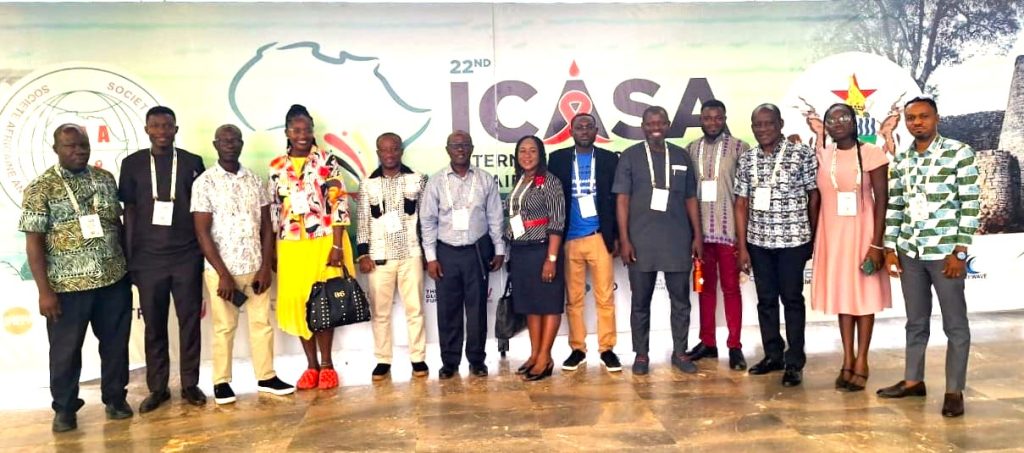By Francis Ameyibor
Harare, (Zimbabwe), Dec. 13, GNA – Access to prompt healthcare is hampered in many communities and medical facilities by stigma and discrimination against those who are HIV/AIDS positive.
Dr. Henry Ajewi-Narh Nagai, Chief of Party, USAID Strengthening the Care Continuum Project and Country Representative, John Snow Inc. (JSI) Ghana, said, “Globally, many people living with or perceived to have HIV experience negative attitudes and harmful actions in health facilities that undermine their health and ability to lead a productive life.”
Speaking to the Ghana News Agency in an interview on the sidelines of the just ended 22nd International Conference on Aids and Sexually Transmitted Infections in Africa (ICASA) in Harare, Zimbabwe, Dr. Nagai emphasised the steps showing that discrimination and stigma can be effectively combated.
ICASA 2023 started on December 4th and ended on December 9th, on the general theme “AIDS is not over: Address inequalities, accelerate inclusion, and innovate,” and was organised by the Society for AIDS in Africa in collaboration with the government of Zimbabwe and other partners, including the World Health Organisation, the Global Fund, and others.
Dr. Nagai said that efforts to reduce stigma, such as those in Ghana, have improved the quality of care for people living with HIV (PLHIV) and other key populations, including men who have sex with men (MSM), drug users, transgender individuals, and sex workers. These efforts have also significantly changed the attitudes and practices of health facility staff.
According to him, a stigma-free health facility is one that offers top-notch treatment and treats PLHIV and other important populations with dignity and compassion.
Dr. Nagai emphasised that by using standard precautions—which the World Health Organisation defines as the minimal degree of infection control measures for all patients-health facility staff members can also shield themselves against HIV transmission in the workplace.
Additionally, the JSI Ghana Country Representative mentioned that staff members at health facilities felt comfortable getting diagnosed for HIV, living with the virus, and going on with their jobs in a stigma-free environment.
Dr. Nagai concentrated on JSI Ghana’s initiatives, pointing out that the organisation has given 58 motorcycles to Ghana Health Services in Western,

Western North, and Ahafo as part of its efforts to combat the HIV/AIDS pandemic.
To ease the transportation demands of HIV viral load samples from the health facilities Anti-Retroviral Therapy (ART) sites to the reference laboratories, he added that Western received 28 motorbikes, Western-North 18 and Ahafo 12 for the various health facilities in the districts and sub-districts.
According to Dr. Nagai, the purpose of the support and gift is to help those living with HIV become healthier and better informed about their viral load status.
To help HIV patients learn their status and begin life-saving anti-retroviral therapy, he said the JSI Ghana Project would maximise cooperation between service providers like the Ghana Health Services, Ghana AIDS Commission, Christian Health Association of Ghana, PLWH, and their clients.
As part of participating in ICASA 2023, JSI Ghana mounted an exhibition at the conference village, which received large patronage.
GNA